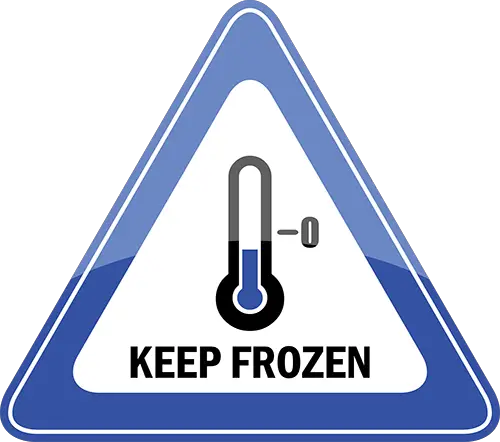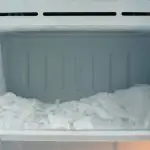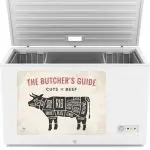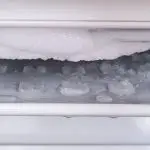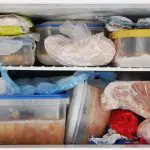10 Reasons Why Your Freezer Is Leaking Water (How to Fix)
Freezer technology has given us a reliable way to store and keep food fresh for long periods of time, but when that system malfunctions and leaves water all over the floor or in the fridge, it can be very frustrating, leading people to wonder: why is my freezer leaking?
Here are the top 10 reasons why your freezer is leaking water.
- Malfunctioning icemaker
- Damaged evaporator tray
- Unbalanced appliance
- Clogged drain
- Freezer drain defrosting
- Ice buildup on drain gutter
- Damaged door seal
- Defective thermostat
- Water line obstructions
- Detached hose/coupler
Issues with your freezer can cause further damage to your entire refrigeration appliance and if you’re experiencing water leakage from your freezer, you should investigate the issue quickly.
The rest of this article will walk you through how to diagnose and repair each of these common freezer problems.
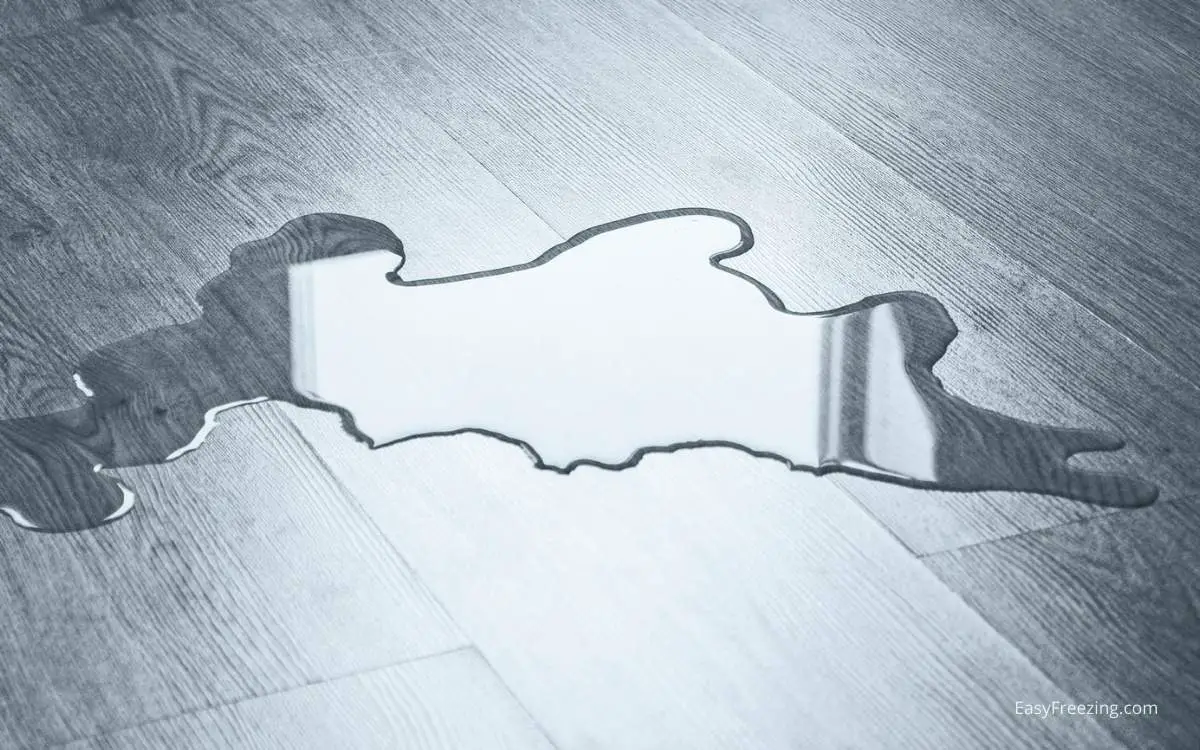
Freezer Problems That Cause Leaking & The Solutions
Oftentimes, if you’re noticing an issue with your freezer, the first step you should take is to run the defroster. Most modern ones do a defrost cycle automatically, but for older models, you’ll need to do a manual defrost occasionally to reduce the risk of ice blockages.
A lot of components in the freezer can experience a buildup of ice, leading to water leaking from the freezer because it’s not draining properly.
If you run the defroster and find that your issue is solved, then you can rest assured that your freezer was only experiencing a simple blockage rather than a malfunction in the parts.
If that was your problem, then you’re done! However, if your freezer is still leaking read on for the most common problems and solutions.
1. Malfunctioning Icemaker
A malfunctioning icemaker is one of the most common causes of water leakage from a freezer.
There are several conditions that can cause your icemaker to malfunction—variable temperatures in the freezer, ice getting stuck in the mold, clogged water lines—that can cause water to leak from your freezer.
Oftentimes, if running the defroster doesn’t fix the issue, then you should have a repair technician come out to have a look at a potential malfunction in the ice maker.
2. Damaged Evaporator Tray
The evaporator tray (or drain pan), as the name suggests, catches and evaporates condensation by utilizing heat from the condenser, evaporator, and motor.
If there are cracks or holes in the tray, water is able to escape from the pan, potentially leaking onto your floor. If you notice your tray is damaged, replace it with a new one, and your issue should be resolved.
3. Unbalanced Appliance
One commonly overlooked issue with freezers is that they must be balanced to work properly. To dispose of condensation effectively, the appliance must be properly positioned on the floor.
Tilting can cause the icemaker to drip and for water to escape from the evaporator tray; moreover, if dripping water has caused rot in your floors, it can cause one side of the appliance to sink, further increasing the risk of damage to both your freezer and your home.
Use a level to ensure your appliance is properly balanced.
4. Clogged Drain
Drains are one of the most common causes of freezers leaking. Excess water travels through the drains to be evaporated in the drain pan.
In the event of a clogged drain, water builds up and can eventually leak out of the freezer. If you have an older freezer, do a defrost cycle to clear out any buildup of ice.
If that doesn’t work, it might be that pieces of food and grime from the freezer are blocking the drain. You can check the line by running water through it. If it doesn’t come out the other end, then you should consult a professional technician.
5. Freezer Drain Defrosting
The freezer drain is meant to run while the freezer is in defrost mode. If the drain is running while the freezer is operating normally, then leaking can occur.
This is a major defect in the freezer design, and you should consult a technician if you notice the freezer drain running in defrost mode while the freezer is operating normally.
6. Ice Buildup on Drain Gutter
Similarly, the drain gutter transports water to the drain pain, where it can be evaporated. A buildup of ice on the drain gutter can cause water to backlog and leak out of the gutter, eventually leading to water leakage on your floor.
Run a defrost cycle if you have an older fridge; otherwise, you can manually chip away at the ice on the gutter. Just exercise caution while you do this so that you don’t damage any other components in the process.
7. Damaged Door Seal
A door seal is important in keeping the cold air in the freezer isolated from the outside. Air at room temperature can flood in through seals, and the frosty air in the freezer can condense on weak points in the door seal.
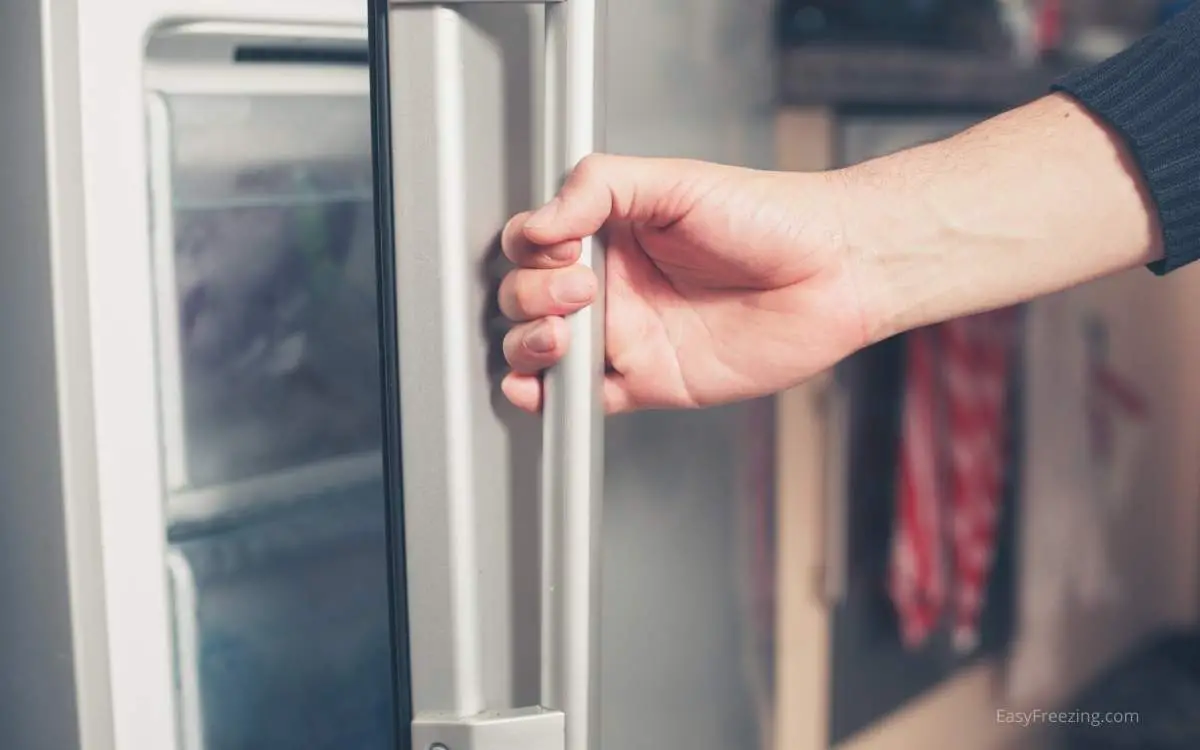
If this is occurring, you’ll typically be able to identify pretty quickly where the water is leaking from and where the fault is in your door seal. To fix this, you’ll need to uninstall the damaged door seal and replace it with a new one to prevent cold air from escaping.
8. Defective Thermostat
Thermostats regulate the temperature in your freezer, and as they age, thermostats tend to wear out and become more inaccurate over time.
As such, if the thermostat isn’t regulating the temperature properly, water might be allowed to condense inside the freezer, causing leakages.
To troubleshoot this, you can replace the batteries (on applicable models), examine the circuit panel for a tripped breaker, check the filament for separation, and ensure that the temperature reading of the thermostat is accurate using a multimeter.
If you’re not experienced working with appliances, your best bet is to call in a technician if you suspect the temperature in your freezer is off.
9. Water Line Obstructions
The water line supplies water for the icemaker, and, if malfunctioning can cause water to leak and freeze, making a puddled mess.
If your ice cubes smell funny, then it’s quite possible grime is clogging your water lines or there’s an improper seal somewhere along the component.
To fix this issue, you’ll need to either remove the component and clean out any ice or grime or have the part replaced if damaged.
10. Detached Hose/Coupler
The drain hose or coupler can become detached, causing leakages at the connection point. Check your hose and coupler to see if that’s where the water leakage is occurring.
If so, try tightening them or replacing them if you notice splits or cracks, and your freezer should be back to normal.
Why Your Freezer Is Leaking Water – Conclusion
Freezers are important parts of our lives, but a leaky freezer is a nightmare to deal with. If you’re doing any DIY repairs, make sure to remove and store all food and unplug the freezer so that it’s not leaking while you’re working.
Hopefully, with some direction on how to diagnose your freezer issues, you can avoid leakage in your freezer in the future.
